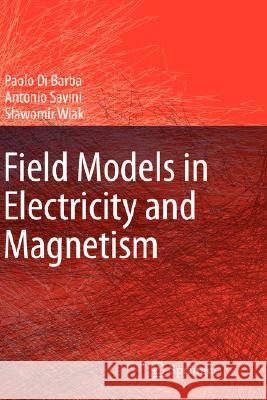Field Models in Electricity and Magnetism » książka
Field Models in Electricity and Magnetism
ISBN-13: 9781402068423 / Angielski / Twarda / 2008 / 174 str.
The subject of computation in electricity and magnetism has so advanced in the past 40 years, since the advent of digital computers and thanks to the development of numerical methods, that today it urges and deserves adequate collocation also in curricula for electrical engineering. However, the time allotted to the subject in generalisnotverylargeinundergraduatestudies, wheremoreemphasisisstillusually attributed to circuits and systems than to ?elds. Moreover, ?eld models are generally not very popular among students, who are by far more familiar with circuit models. Even if one considers the quasi-static case, however, not only is electromagnetism fundamentalforpeopledealingwithelectricandmagneticdevices, butitprovidesthe basisfor, e.g.semiconductordevicedesign, bioengineeringapplicationsandsoforth. In the authors opinion, therefore, time has come to present ?eld models in el- tricity and magnetism, in the frame of an introductory textbook to be used by senior undergraduateorgraduatestudentsintheareaofelectricalandcomputerengineering. Elementary electromagnetism, basic vector analysis and fundamentals of numerical analysis are assumed to be known subjects. Havingthisinmind, theauthorshavecollectedtheexperiencetheyhaveaccu- lated in teaching electromagnetic theory at various levels and in different countries; theyintendtoofferabookonappliedelectricityandmagnetism, describingthepr- lemsofcalculatingelectromagnetic?eldsandtheintegralparametersconnectedwith them in suf?ciently clear and short form. The aim is that of writing a textbook containing the necessary background, i.e. laws explaining electromagnetic phenomena, mathematical operators and equations as well as methods for electromagnetic ?eld calculation. The latter include both analytical and numerical methods applied to the analysis as well as to the synthesis of electromagnetic devic











